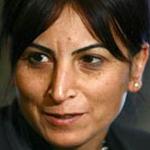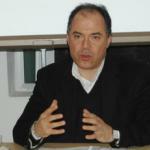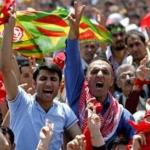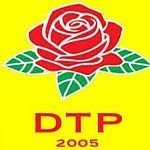Speaking at the "Conference for Dialogue" organised by the Peace Parliament on 6 June in order to discuss the Kurdish question, Aysel Tuğluk, MP for the pro-Kurdish Democratic Society Party (DTP) in Diyarbakır, said that the interruption of fighting had led to a period where peace was possible. For the fighting sides, the legitimacy of armed conflict had ended, and there was no way forward outside of discussion and politics.
"Three paths"
She said that there were three possible paths to take towards a solution of the Kurdish question. The first, leading to a "quick solution", would be for state representatives to speak with imprisoned PKK leader Abdullah Öcalan. She said that Öcalan was influential both "in the organisation and with the people."
The second path would be for the state to define the problem without contacting anyone, but asking international actors to act as mediators. She argued that this was the path being followed at the moment. She warned however, that this process would fail if "the DTP, the PKK and Öcalan are not considered as partners" in the dialogue.
The third path, and the one advised by Tuğluk, was to build a dialogue with the DTP, which would mean an indirect dialogue with the PKK and Öcalan.
She reiterated the suggestion of current PKK leader Murat Karayılan, who had called for intellectuals to be integrated in the process, arguing that this would stop the process from stalling.
"PKK has many sympathisers"
Answering questions from the audience, Tuğluk said, "People have to realise that the 2.5 million votes received by the DTP are by people who sympathise with the PKK. The PKK is not just 5-7,000 people in the Kandil mountains."
The MP emphasised that the current period, which President Abdullah Gül recently described as "an opportunity", did not allow people the possibility of making mistakes. She said that all sides had to be courageous and dedicated: "The state must stop operations, the PKK must not enter fighting, and politicians must avoid language which would obstruct the process."
Tuğluk evaluated the utterances of state representatives as "well-intentioned". As a "map" for a solution, she offered "no fighting, dialogue and a new constitution."
She warned of the possibility of provocative acts, but said that there had to be shared reactions against them."
As for dialogue, the MP argued that preconditions were good intentions, a civilian language, a suppression of nationalist sentiments and a self-critical approach. (TK/AG)
















